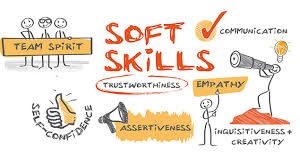Belinda Robinson, chief executive of Universities Australia, wrote a things-are-hunky-dory piece in last week’s HES (“Most graduates find the right jobs and perform well”, 11/10).
Robinson depends heavily for her status quo piece on QS Graduate Employability ratings and the QILT (Quality Indicators for Learning and Teaching) framework. Both sources have been under fire in the recent past (“QILT website, league tables under fire”, 14/10/2015; “Group of Eight rejects QS graduate employability rankings”, 18/11/2015).
She notes with pride that Sydney and Melbourne universities appear in the QS global top 10 — no mean feat.
But before we break out the champagne, we should note that there are methodological problems with the QS data, which are undergoing major re-engineering, as their website attests: “As expected, the extended coverage and the methodological refinements have had an impact on the results, introducing greater volatility into the rankings table compared to previous editions. We fully expect this volatility to be confined to this instalment.”
Digging into the QS website, we see the criteria for employability are employer reputation, alumni outcomes, partnerships with employers per faculty, employer/student connections, and graduate employment rate.
Robinson notes some excellent university-industry co-operative ventures, including internships, but QS’s alumni outcome measure, stressing “world-changing individuals”, is partly code for how much alumni give back to alma maters — huge in the US, very low in Australia.
Digging into the QS website even further, we come across a “Five Soft Skills That Will Help You Land a Job” page. These are the usual suspects: communication, problem-solving, teamwork, working under pressure and flexibility.
While QS is methodologically heavy on its employability criteria, it offers no guidance on how to acquire and prove that you have such soft skills. By osmosis, perhaps?
On a related note, Robinson picks up from QILT data that “a strong 92 per cent were satisfied with the ‘foundation skills of graduates’ — things such as general literacy, numeracy, communication skills and the ability to investigate knowledge”.
But is this really so? Let’s take literacy, for example:
“One in 10 Australian university graduates is semiliterate and would fail to interpret the instructions on a box of headache tablets, an international study shows … It found about 10 per cent of graduates aged 20 to 34 have poor literacy — in line with Britain — while about 15 per cent have low numeracy skills.” (“Literacy, numeracy skills below minimum standard”, 30/1/2016).
Recent Program for International Student Assessment results for Australian primary and secondary students would suggest that this situation can only deteriorate (“UN agency ranks Australia 39 out of 41 countries for quality education”, The Sydney Morning Herald, 17/6/2017).
JobGetter.com’s Fiona Anson acknowledges that Robinson has some valid points but argues that newer trends are ignored: “At the end of the day, the vast majority of students enrol in university with the belief that it will enhance their employment outcomes.
“At the same time, businesses are changing their views with much more focus on enterprise or soft skills rather than hard technical skills. If that’s the case, then it is the development of these skills that will make a graduate most employable.
“A case in point — Ernst & Young in the UK is now recruiting directly out of high school and no longer requires any degree qualifications, preferring to train for technical skills on the job.
“At the Higher Education Forum in Sydney last month, graduate recruiters from both Deloitte and the Commonwealth Bank stated that they were looking for candidates who had work experience and soft skills as a priority — the type of degree they studied was largely irrelevant.”
Universities have been wrestling with this soft skills-graduate skills-transferable skills-generic skills beast for several decades without much success.
Because university faculties and departments are silos with locked-in technical curriculum, the half-baked solution they usually come up with is “embedding” or “contextualising” soft skills with “the hard stuff”. It doesn’t work.
For example, some academics will say: “Oh, we teach team/collaboration skills — we get them to do team assignments.” A fifth-year student blew the gaff on this nonsense with an article, “Students hate group assignments”, (10/10/13).
All too often, students lumbered into “teams” or “syndicates” are confronted with the not so warm and fuzzy truth of too many groups — free riders/social loafers (bludgers who share the top mark), risky shifts (the tendency of groups to make foolish decisions), and Irving Janis’s groupthink concept. In a perverse way, this may equip them for the backstabbing world outside, but how much better would it be if students had these skills.
There’s that word again: skills. Don’t really belong in a university, do they, comes the echo out of a thousand silos.
But proper treatment of the concepts associated with soft skills — concepts not only of high group dynamic functioning but also academic and real-world self-defence — embraces hard social science knowledge as well as skills. To separate them is a false dilemma.
In the 2015 Graduate Outlook Report put out by GraduateCareers.com.au (the last one in this fine series, unfortunately), some employer feedback states the bleeding obvious: “Ensuring a subject is included in the degree that focuses on being work ready”; “I feel running a compulsory subject around employability skills would be beneficial”.
Will the silos cope? Perhaps a new soft-employability-transferable skills-knowledge silo is the only way to get inflexible structures to deliver what is actually needed by industry, the world, the future and the clients — sorry, students.
Communications consultant Baden Eunson used to teach in the school of languages, literatures, cultures and linguistics at Monash University. His latest book is C21: Communicating in the 21st Century (Wiley).



